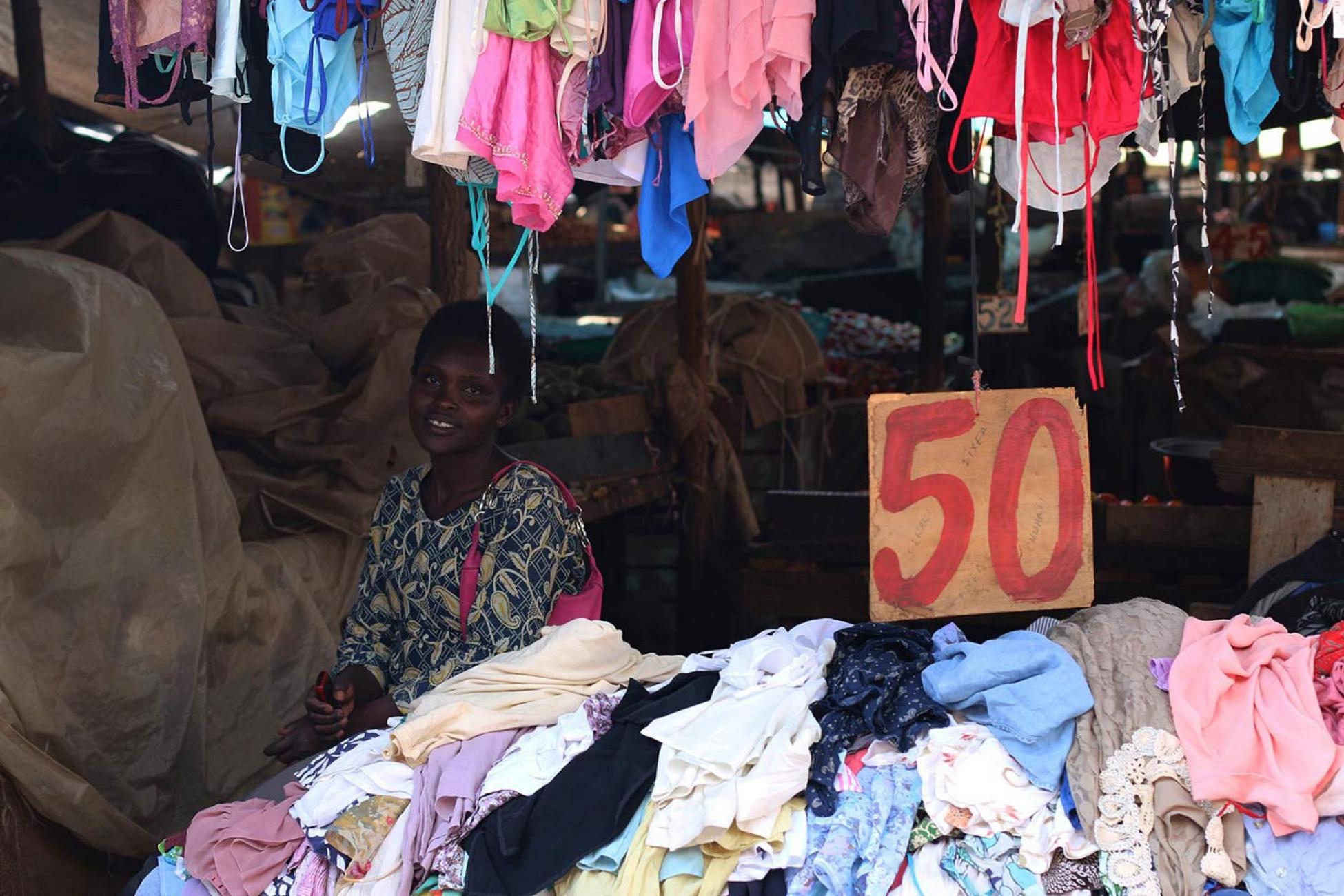Ever wonder where our donated clothing ends up? Many clothes donated to East Africa from North America and Europe end up in large resale markets like Nairobi’s Toi Market. It’s the ultimate thrift shop.
You’ll find everything your heart could desire here—sweaters, shoes, backpacks, socks, pants and leggings. Piles of clothes hang from the roof and seamlessly blend into wooden thatched tables holding pounds of Western wardrobe rejects.
Mounds of second-hand Birkenstocks, Nikes and Vans end up selling in the market’s windy depths. You can easily get good quality Birkenstocks for under 10 dollars—such a steal.
Piles of clothes hang from the roof and seamlessly blend into wooden thatched tables holding pounds of Western wardrobe rejects.
Whenever I travel to Nairobi, I’m always excited to shop at Toi, not only to get sweet deals, but also contribute to the local economy. If you’re travelling for a long period of time in East Africa, pack clothes you’re willing to donate to local non-profits and fill your bag back up with finds from local markets. This way you can contribute to the local economy, give back to those in need and refresh your wardrobe.
The market vendors buy the clothes at large wholesale markets within the city centre and then bring them to markets like Toi on the outskirts. Some prices are fixed, but others you’ll have to fight for. You need to stay alert. Before venturing into the world of extreme bargaining, ask locals how much they would pay for certain things. If you’re armed with knowledge about local prices, you won't find yourself getting severely ripped off. The vendors will try and make a quick dime off of your ignorance.
Purchasing from Toi feels like a work out. Walk this market and you’ll have to bargain hard. Locals will tell you that foreigner tax a.k.a. mzungu (whiteman's) tax is real. Most vendors will try to charge you double or triple the local price. You need to spend time fighting for each item you want.
My first time bargaining I felt guilty trying to bring the price lower, especially when the vendors are less off than I. But I always remember that they’ll tell you when the price is too low. Vendors are not going to sell something to you at a loss. They want to make money, just as much as you want a fair deal.
A good rule of thumb is to cut the price by a third and bargain up from there. If the vendor is trying to sell a pair of shoes at 20 dollars try and get the item for $10 (or even eight if you’re lucky).
Be willing to walk away. A good trick is to say, “I’m going to shop around.” The vendor will realize you’re serious about your price and may even run after you. Usually they’ll drop the price so that you’ll by from them and not their competitor.
Enjoy the experience of shopping like a local, it’s much more fun than being a lone wolf in a shopping mall back home. Interact with the shopkeepers at their stands and make connections. This is what travelling is about.

